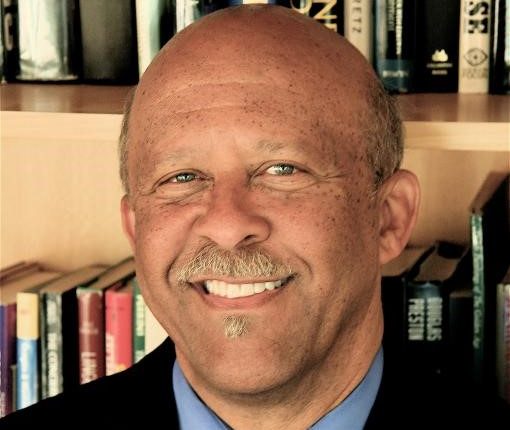Living in times of a pandemic puts a lot of stress on our personal lives and business. This time, I decided to interview a leading American communication and political science professor on the subject.
Ernest J. Wilson, Ph.D., professor of communication and political science, is founder and director of the USC Center for Third Space Thinking, devoted to research, teaching and executive education on soft skills in the digital age. He is also a faculty fellow at USC Annenberg’s Center on Public Diplomacy, a member of the board of the Pacific Council on International Policy and the National Academies’ Computer Science and Telecommunications Board, and a member of the American Academy of Arts and Sciences. He was on the board of the Corporation for Public Broadcasting from 2000 to 2010, the last year as chairman, and served as Dean of the USC Annenberg School for Communication and Journalism from 2007 to 2017. Through the Center for Third Space Thinking, Dr. Wilson’s most recent research focuses on critical workforce competencies and talent and skills development in the 21st century. As a fellow at the Center for Advanced Study in the Behavioral Sciences at Stanford University (2017–2018), he is currently writing a book on utilizing competencies via the framework of Third Space Thinking.
Dr. Wilson visited Bulgaria in 2019 and is one of the key mentors of the Bulgarian Entrepreneurship Center foundation.
Tell us your views on GLOBALIZATION and COVID-19?
The wild ride of globalization was bound to experience a push back one way or another. Globalization, creating losses and gains, was simply working out badly for too many people, both in developing and developed countries. But no one would have anticipated it would happen this way – on the back of a global health pandemic. But the health catastrophe is revealing so many inequities across the board, not only in health, but in all the multiple conditions that determine whether we and our families will be healthy or not. Conditions like employment, education and the environment. As well as the conditions that determine whether we receive adequate healthcare when we need it. Therefore, COVID-19 and globalization are intimately linked. It is difficult to predict how they will continue to interact with one another. But we know that they will, making our future lives ever more complicated.
And what about INTERNATIONAL ORGANIZATIONS such as the WHO?
Like all important trends, here too the dynamics pull in different directions simultaneously. Since COVID-19 is truly global in scope, it demands more international collaboration across all the relevant institutions, like the WHO and the World Bank. Yet it also fans the flames of selfish, inward-looking nationalism. At the intersections of these two, individual politicians try to navigate, seeking to enhance their own appeal to their electorate. We see selfish navigation in the U.S., in Central and Eastern Europe, and in parts of Asia. But we also see collaborative navigation. Again, it is too difficult now to know which trend will dominate. We should press publicly for collaboration as a necessity.
Tell us about your theory of “THIRD SPACE THINKING”, especially in times of crises?
In a crisis it is not the STEM skills (Science, Technology, Engineering, Math) that a population most needs in the short term to navigate their daily lives. It is the ACE-IT skills (Adaptability, Cultural Competence, Empathy, Intellectual Curiosity, Three-hundred-sixty-degree Thinking), the people skills. Whether as individuals, or in our collective lives, we must draw on the competencies of adaptability, empathy and three-hundred-sixty-degree thinking. The volatility and uncertainty require us to adapt quickly, without sure guidelines, and so we must be guided by deep thinking, by ethics and mutual respect across borders. These are fundamental attributes that must guide our practical actions.
Are some ATTRIBUTES more important than others?
The five competencies (Adaptability, Cultural Competence, Empathy, Intellectual Curiosity, Three-hundred-sixty-degree Thinking) we have identified as essential in today’s world are all important. While we can point to one or another of them as important under particular circumstances, under today’s conditions of unprecedented and threatening change, they must be integrated with nuance and balance. We need all five as well as the more foundational elements that have always been important to humans in any age – ethics, courage and grit. This is a moment in which we must draw on all our ancient ethical traditions, as well as our modern insights.
What should we expect from HUMAN BEINGS in the months to come?
I have been surprised and pleased to see how people are behaving in my neighborhoods and in my city. They reach out to others. They say how much they appreciate the ‘small’ things in life. They offer expressions of gratitude, or patience with one another. These are deeply human realities that we sometimes take for granted in our frantic modern lives. I have tried to appreciate my family and friends, and to have gratitude for what life has brought to me.




Recent Comments